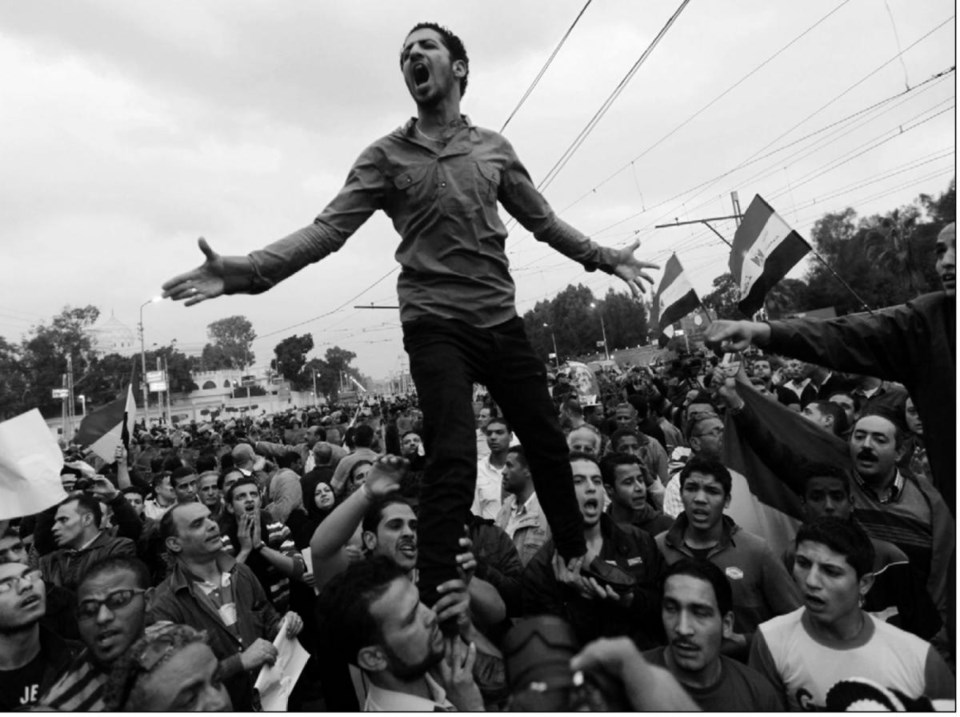More than 100,000 Egyptians protested outside the presidential palace in Cairo on Tuesday, fueling tensions over Islamist leader Mohammed Morsi's seizure of nearly unrestricted powers and the adoption by his allies of a controversial draft constitution.
The outpouring of anger across the Egyptian capital, the Mediterranean port of Alexandria and a string of other cities pointed to a prolonged standoff between the president and a newly united opposition.
Morsi's opponents, long fractured by bickering and competing egos, have been re-energized since he announced decrees last month that place him above oversight of any kind, including by the courts, and provide immunity to two key bodies dominated by his allies: The 100-member panel drafting the constitution and parliament's upper chamber. The decrees have led to charges that Morsi's powers turned him into a "new pharaoh."
The large turnout in Tuesday's protests - dubbed "The Last Warning" by organizers - signalled sustained momentum for the opposition, which brought out at least 200,000 protesters to Cairo's Tahrir Square a week ago and a comparable number on Friday to demand that Morsi rescind the decrees.
The huge scale of the protests have dealt a blow to the legitimacy of the new constitution, which Morsi's opponents contend allows religious authorities too much influence over legislation, threatens to restrict freedom of expression and opens the door to Islamist control over day-to-day life.
What the revived opposition has yet to make clear is what it will do next: campaign for a "no" vote on the draft constitution in a nationwide referendum set for Dec. 15, or call on Egyptians to boycott the vote.
Already, the country's powerful judges have said they will not take on their customary role of overseeing the vote, thus robbing it of much of its legitimacy.
Morsi was in the presidential palace conducting business as usual as the protesters gathered outside.
He left for home through a back door as the crowds continued to swell, according to a presidential official who spoke on condition of anonymity because he was not authorized to speak to the media.
The official said Morsi left on the advice of security officials to head off "possible dangers" and to calm the protesters. Morsi's spokesman, however, said the president left the palace at the end of his normal work day, through the door he routinely uses.
The protest was peaceful except for a brief outburst when police used tear gas to prevent demonstrators from removing a barricade topped with barbed wire and converging on the palace.
Soon after, with the president gone, the police abandoned their lines and the protesters surged ahead to reach the palace walls. But there were no attempts to storm the palace, guarded inside by the army's Republican Guard.



